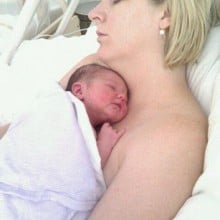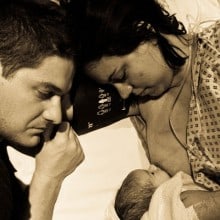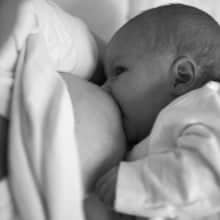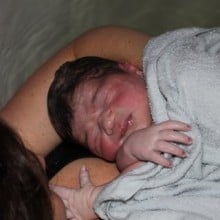What is an Antenatal Doula?







Most Doula and client relationships can begin a few months or few weeks before the baby is due.
During this time, we hope to establish a relationship that gives you complete freedom to ask questions, express fears and concerns, and take an active role in creating a birth preference. Doulas make themselves available to you by phone to answer questions or explain any developments that may arise in your pregnancy. Doulas do not provide any type of medical care. However, we are knowledgeable in the medical aspect of labour and delivery so they can help their clients get a better understanding of procedures and complications that may arise in late pregnancy or during delivery.
Doulas are there to discuss anything and everything you wish to talk about, whether it be about previous birth experiences, your expectations on the birth, birth preferences/plans, birth physiology, optimum foetal positions (OFP’s), exercises and anything else you wish to know more about.
What is a Birth Doula?
A birth Doula supports a woman or couple through pregnancy and labour.
Her role is very much focused on emotional and practical support. She is not there to advise on medical questions or offer medical support. Her role is NEVER to replace a Midwife or Doctor but to work positively alongside all medical professionals.
She will be sensitive to the couple’s relationship and will discuss with them how she can best support them ensuring not to exclude the woman’s husband / partner.
During delivery, Doulas are in constant, close proximity to the mother at all times. They can provide comfort with pain relief techniques, such as breathing, relaxing, massage and labouring positions. Doulas also encourage participation from the partner and offer reassurance to both of you. The goal of a Doula is to help the mother have a positive and safe birth experience, whether the mother wants an un-medicated birth or medicated birth.
What is a Postnatal Doula?
A postnatal Doula supports a new family for the first few weeks after the birth.
Her role includes emotional and practical support. She may help with light household duties (laundry, light cooking, general tidy-up), she can help with siblings, and she can support breastfeeding (or guide you towards professional breastfeeding support if the need arises). She also encourages mothers to rest and would look after your newborn during that time. Because of her regular presence in the family, she can be sensitive to your needs and support you to have the most positive time with your newborn(s) and encourage bonding between your baby, yourself and family members. Ultimately, she will aim to leave you rested and confident.
What are some of the benefits of having a Birth Doula attended birth?
The benefits of having a Doula are shown here in the results of the 2008 Doula UK Survey:
- 21% gave birth at home (compared to 2% nationally)
- 27% laboured in a birth pool
- 35% of labours were under 6 hours
- 72% of labours were under 12 hours
- Nearly 50% fewer caesareans (14% compared to 26.6% NHS – Gtr London demographic)
- 50% fewer epidurals (16% compared to 33% nationally)
- 65% fewer inductions (7% compared to 20% nationally)
- 96% breastfed at birth (compared to 76% nationally)
- 6% where the doula was the sole birth partner
- Study of 436 births (47% first time mothers)
Myth: A Doula has her own belief about how the birth should go, and imposes it on the woman or couple.
A Doula’s true agenda is to help ensure that the woman’s or couple’s agenda is acknowledged and followed as much as possible. The Doula can remind the staff or the couple of some items on the birth plan that are forgotten, but which later might be important. Sometimes if a birth plan is not followed, the couple later look back with regret or disappointment, however, she is not there to be “pushy” or demanding on the doctors or midwives as this will only cause stress on everyone present.
Why is there a need for Doulas?
As childbirth has moved from home to hospital, a vital element of care has been lost from the whole process. Gone are the days where a woman would have continuous support from one carer throughout her pregnancy and labour. It used to be the case that the womenfolk within the immediate and extended family (mothers/sisters/grandmother etc…) would be on hand to provide the nurturing role for the new mother, to guide by experience and help with the practicalities that need to be performed before, during and after a woman gives birth to a baby.
Later the concept of the community Midwife developed, but due to lack of resources (and no fault of their own), this service is steadily declining in many areas.
Nowadays many women feel that they have to be in hospital to give birth to their baby where it is much more likely that a birth will be medically managed and intervention methods, such as caesarean section or forceps, will be used.
